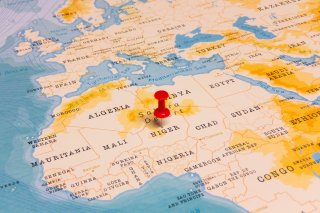Francois Baird

After the recent coup in Niger, the medium-term implications are undetermined, but the outcome is clear. The coup threatens stability in West Africa, American and French interests in the continent, and advances Chinese opportunities. Africans will suffer and Muslim extremists will continue to gain ground. Niger is unlikely to return to democracy in the short term.
Initial hopes expressed by France that the Niger Armed Forces would step in to defuse the coup by the Presidential Guard quickly fizzled when the army sided with the coup. The angry deadline set by leaders of the Economic Community of West African States (ECOWAS) for the military to return deposed President Mohamed Bazoum to power or face military intervention has come and gone. Sanctions were imposed and electricity to Niger was cut by Nigeria, but this hurts the people of Niger, not the military or the insurgents.
Developments in Niger follow the deteriorating security situation in Burkina Faso, which is also affecting other countries in the region. This is an early test for the newly-appointed UN special representative for West Africa and the Sahel, Leonardo Simão, who must muster a coherent response. Formerly Mozambique’s minister of foreign affairs, he is expected to pull together a better response to the risks in West Africa and the Sahel than has so far happened.
ECOWAS has been planning to establish a crisis response team, but so far has failed to fund it. Despite a planning meeting of ECOWAS military chiefs, there is little likelihood of actual African military intervention unless funded and supported by the United States and France. The question is whether a lack of political will, leadership, and funding means nothing will happen.
The military in Niger has learned from coups in Mali, Chad, Guinea, Sudan, Burkina Faso, and Guinea-Bissau that the consequences of such are manageable and rewards desirable. Mostly, in these other coups, when America and France walked away, Russians, in the form of the mercenary Wagner Group, were invited in. American and French governments have not learned from this near-term history.
If America and France do not recalibrate their approach and involvement in Africa, they increasingly risk forfeiting influence in the continent to China and Russia. This includes losing access to strategic minerals, like over 7 percent of the world’s uranium in Niger, together with geographic, security, and trade disadvantages. The way forward requires both a focus on promoting the rule of law and democracy while also having the fortitude for pragmatically dealing with undemocratic regimes and military governments.
Pragmatism does not mean embracing coups at the cost of human rights; rather, it means serving the interests of poor, disenfranchised people by choosing lesser evils. Since France vacated its former muscular assertions in West Africa, particularly after the latest Burkina Faso coup, there are now more displaced people, more insurgent incursions, faster economic decline, further coups, and less democracy than before.
Risks for West Africa are already evident. For example, my sources in the mining industry In Cote D’Ivoire told me that, in the northeastern part of the country, there are daily incursions from Burkina Faso to steal mining equipment and food. “It used to be calm, but now there is risk in Cote D’Ivoire one hour from the Burkina Faso border,” they said. Other industry sources refer to attacks in the West, but mining companies in Mali are still doing mining and exploration, with increased security. Libya, Chad, Togo, Ghana, Senegal, Benin, Nigeria, and Cote D’Ivoire are most at ancillary risk to the weakening security situation due to the coups in Niger and Burkina Faso.
The biggest beneficiary of the situation is Guinea, another West African country recently captured by a military coup. Guinea is proactively in favor of mining. The Guinean government is already trying to capture Burkina Faso mining investment and income and will likely also be attractive to Nigerien miners. Guinea apparently sent a counter-terrorism task force to the border with Mali recently.
To see where the future leads Niger, it is necessary to watch out for certain signals. Consider the performance of its military against insurgents: if government forces lose several significant battles in a row or a major military base is overrun, or if there are significant attacks in Niyamey, the capital city, as happened in Burkina Faso, then America should know that the situation is fast deteriorating further. Another signal would be if high-ranking military officers, government officials, or civilians depart from Niger, and if NGO and UN offices and embassy closures that are currently happening do not reopen.
Additionally, it is necessary to watch out for social decline, such as the rate at which displaced people camps grow, or data concerning harvest and food production as indicators of looming famine, and rumors of shortages. Declining tax income for the military government of Niger will significantly weaken its position too. Any number of these developments will open the door for China, Russia, and even Turkey, which is stepping up its game in Africa.
At present, it is likely that America and France will lose their investments and counterterrorism bases in Niger. Russians will fight in return for mining and other assets. Muslim extremist insurgents will gain ground. And China will make money and increase its influence, all thanks to declining stability in Niger and West Africa.
No comments:
Post a Comment